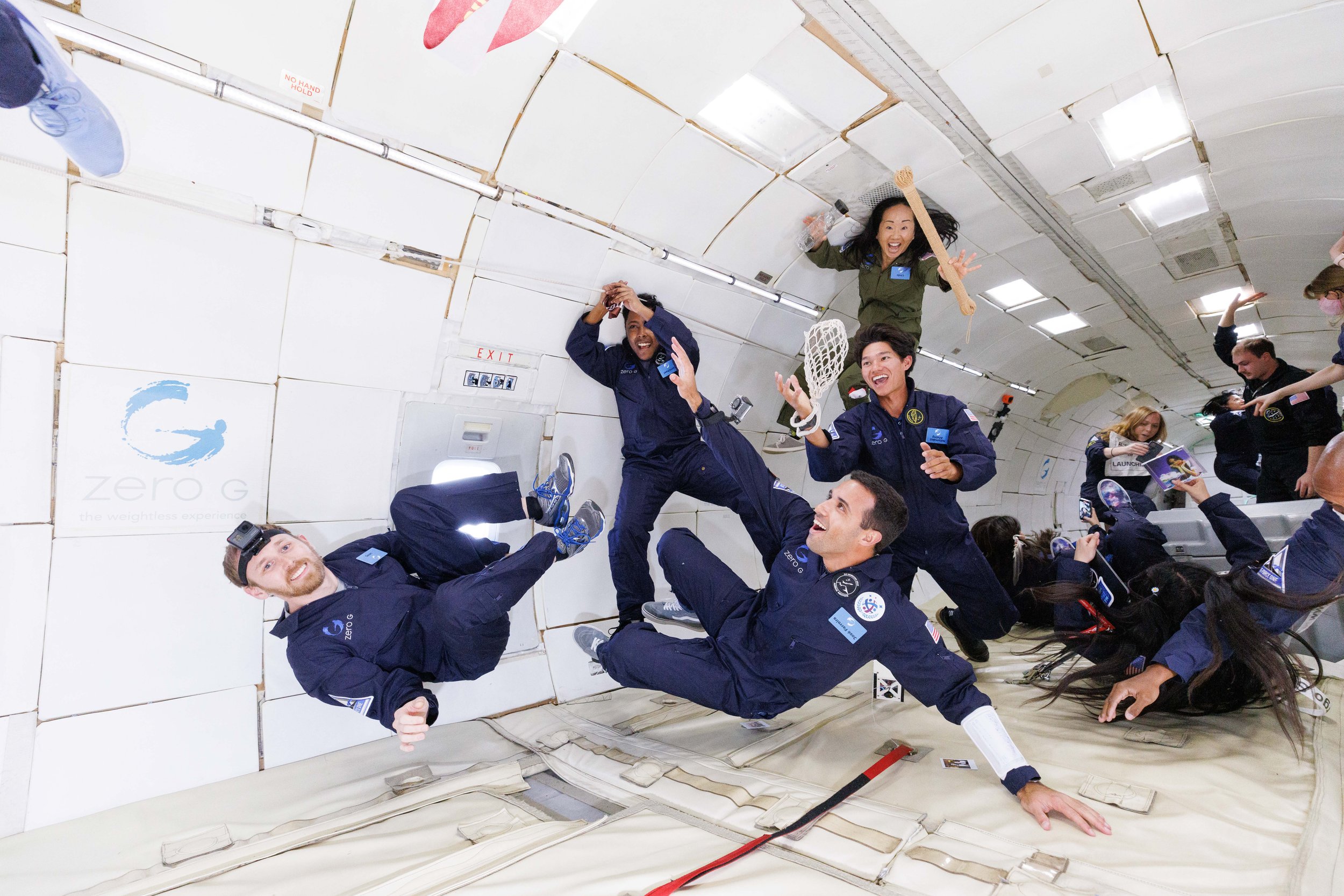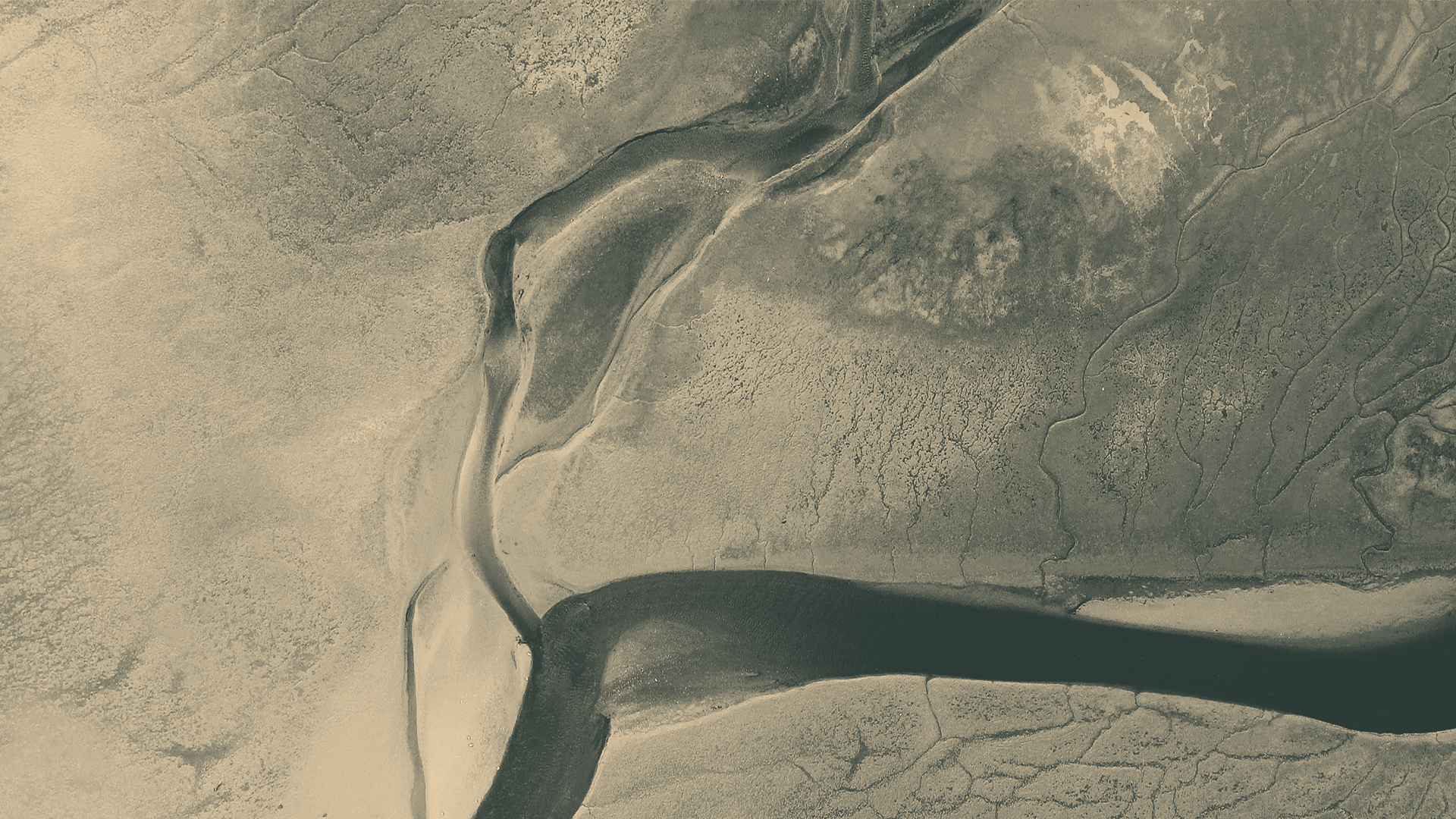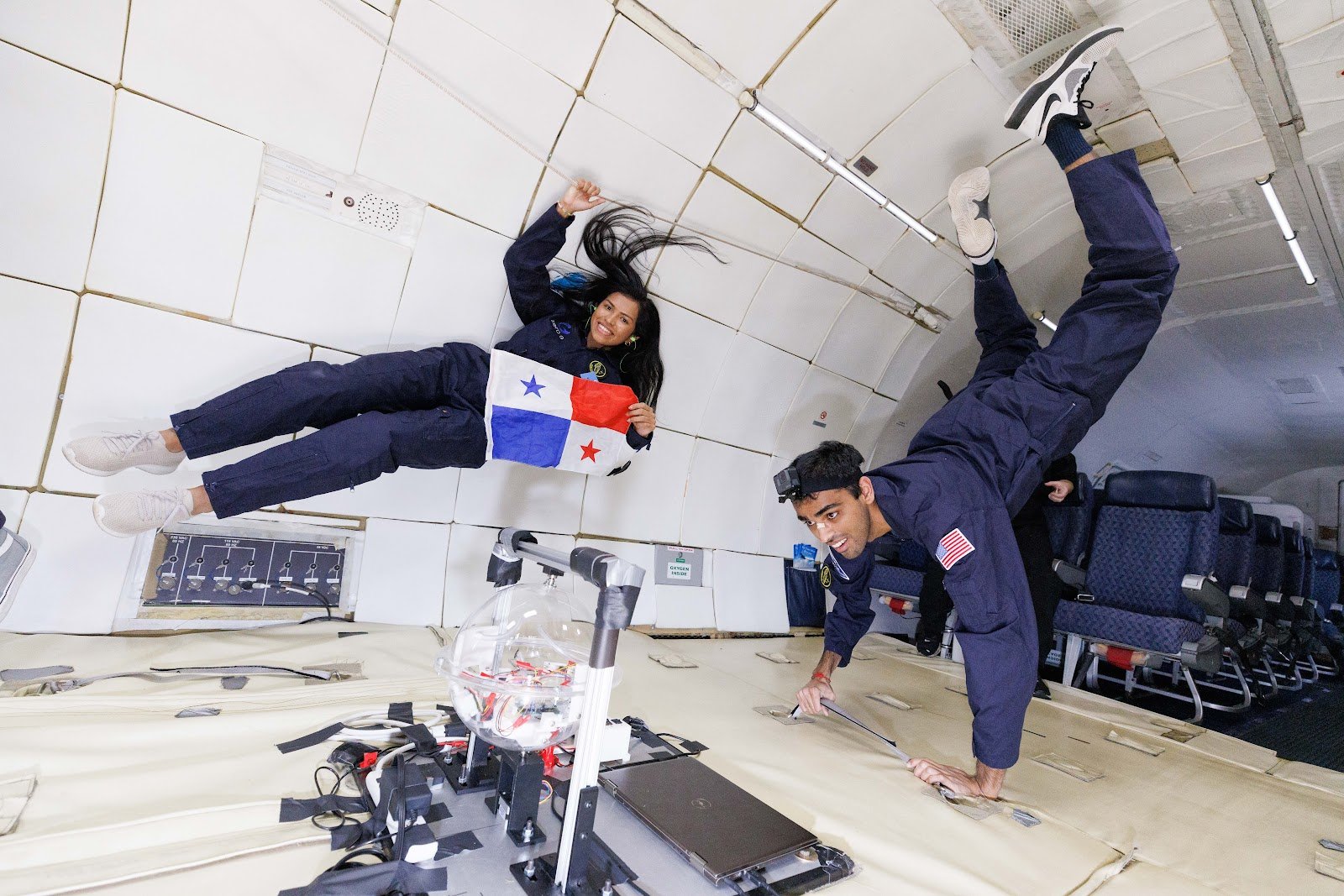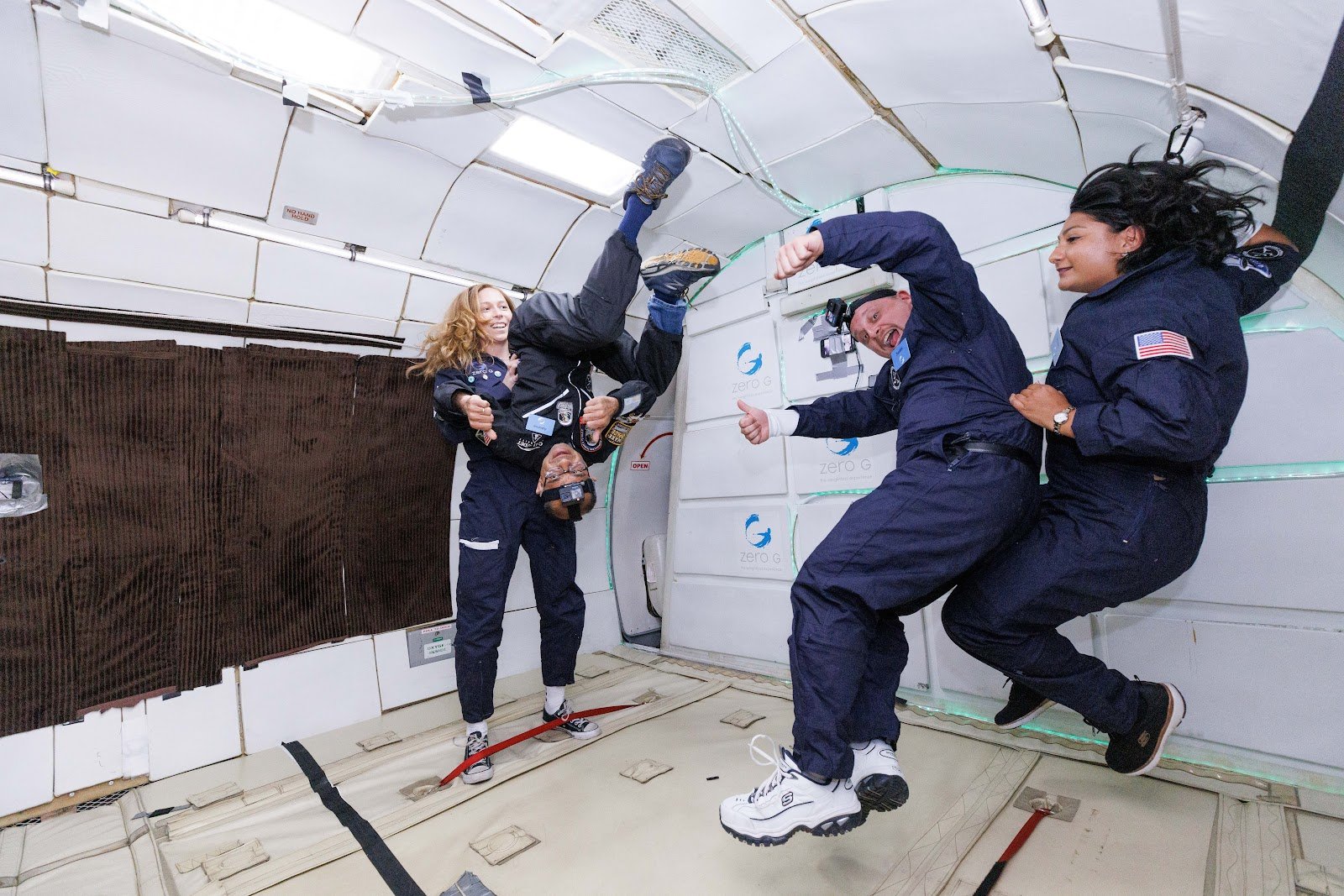ACADEMY
Horizon Zero Gravity Flight Program
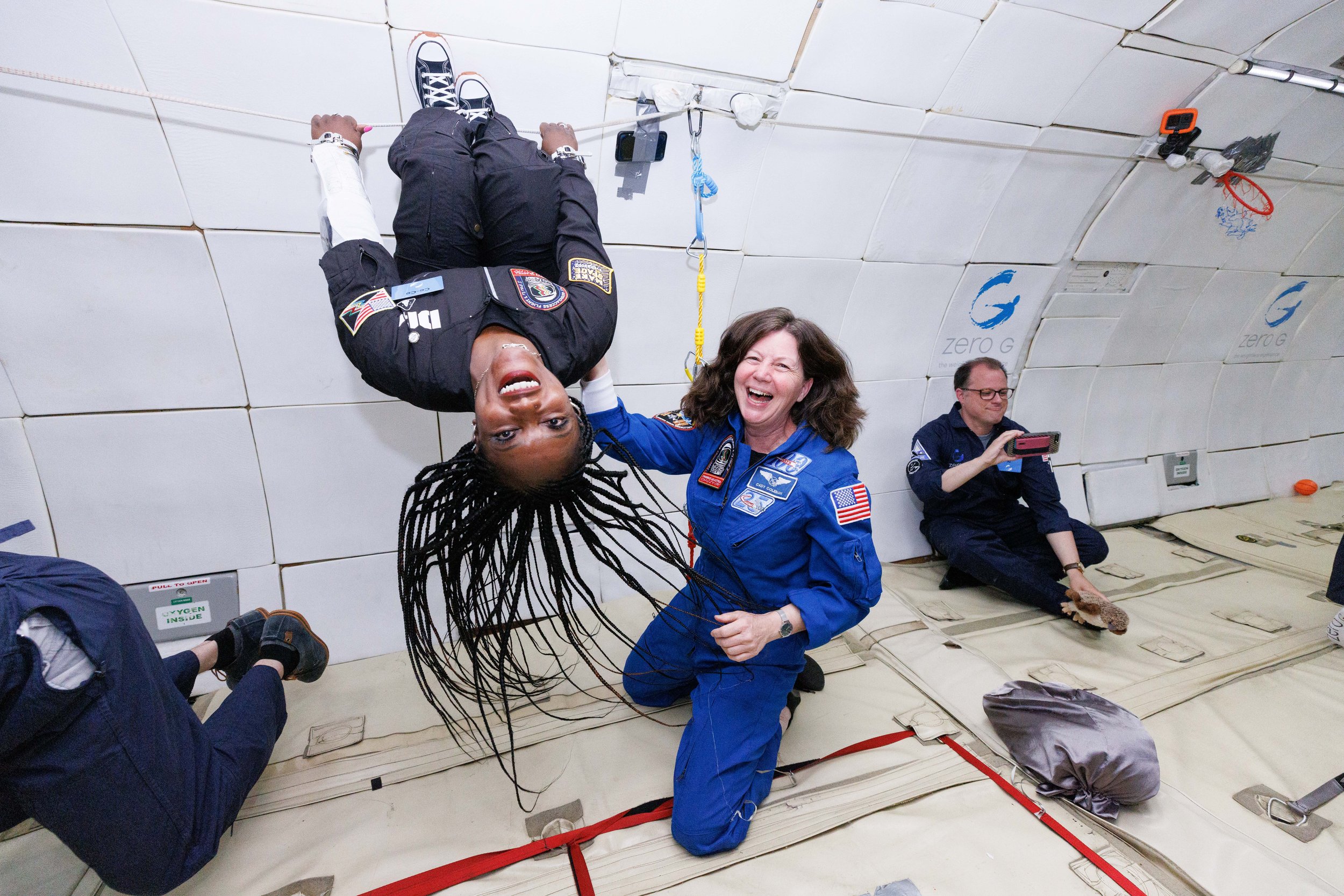
Credit: Steve Boxall / ZERO-G
As a first step toward scaling life in space, Aurelia Institute’s Horizon Program opens access to key technologies and experiences needed to engage with human spaceflight.
Why are zero-g flights important? They are the closest thing to the experience of space that’s possible on Earth.
Parabolic flights provide training for professionals, as well as unique opportunities for research and experimentation in microgravity environments. The problem: they are very challenging, require highly specialized equipment and rigorous safety and standards, and are prohibitively expensive.
These hurdles keep zero gravity flights out of reach for the vast majority of private citizens as well as researchers—not to mention the many non-research professionals whose work would benefit from experience and experimentation with zero gravity.
Learn more about our past and upcoming Horizon zero-g flights.
The Horizon program enables fliers and organizations to conduct research on a zero gravity parabolic flight.
Selected fliers experience twenty parabolas of microgravity, lunar gravity, Mars gravity, and hyper gravity. Each flier participates in an art, storytelling, or research project that is enhanced or uniquely enabled by the modified gravity environment.
Following their zero gravity flights, fliers share their projects with their communities through storytelling, academic publications, documentaries, and social media. For some projects, Horizon is only the start, and projects continue to evolve for technology pipelines in other programs, including suborbital, orbital, and lunar deployments.
The Horizon program also incorporates students who have taken Aurelia’s Microgravity Project Design course, building on Aurelia Academy’s mission of future workforce development.
